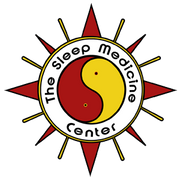How Come You Can Sleep During the Day But Not at Night?

Restful sleep is vital for keeping a clear, well-functioning mind and a strong body. If you find you can sleep during the day but have insomnia when it’s time to go to bed, this could be an indication of a sleeping disorder. The doctors at Glacier Headache & Sleep Medicine in Kalispell, MT, see a lot of patients who suffer from excessive daytime sleepiness and find it is commonly associated with a few disorders.
The Link Between Your Sleeping Disorder & Excessive Daytime Sleepiness
What Is Excessive Daytime Sleepiness?
Excessive daytime sleepiness, or EDS, is the chronic feeling of being tired during the day. It is often accompanied by insomnia, or an inability to sleep at night. You may find the only time you can sleep is when you take naps throughout the day, although you still feel tired afterwards. This can affect your ability to function well, since you have a lack of energy and find it difficult to concentrate. You may have a hard time waking up from your naps or even doze off at inappropriate times.
Associated Sleeping Disorders
 Narcolepsy is one of the common sleep problems associated with EDS. It’s an autoimmune neurological disorder that affects your body’s ability to control its rhythms of sleep and wakefulness. People suffering from narcolepsy may suddenly fall into REM sleep throughout the day. Restless leg syndrome is another common disorder with EDS as a symptom. This leaves patients with the urgent need to move their legs. When they try to sleep at night, they’ll experience pain or a crawling sensation in their legs until they get up. This can make it impossible to sleep through the night and leave patients feeling they can only get sleep when taking short naps throughout the day.
Narcolepsy is one of the common sleep problems associated with EDS. It’s an autoimmune neurological disorder that affects your body’s ability to control its rhythms of sleep and wakefulness. People suffering from narcolepsy may suddenly fall into REM sleep throughout the day. Restless leg syndrome is another common disorder with EDS as a symptom. This leaves patients with the urgent need to move their legs. When they try to sleep at night, they’ll experience pain or a crawling sensation in their legs until they get up. This can make it impossible to sleep through the night and leave patients feeling they can only get sleep when taking short naps throughout the day.
The first step to treating your excessive daytime sleepiness is to diagnose your sleeping disorder. Contact Glacier Headache & Sleep Medicine at (406) 752-1729 to schedule an appointment. They will conduct an evaluative sleep study and diagnose your problem to begin an appropriate treatment plan. Don’t live with your constant tiredness; you’ll feel much better once you’ve found the source of the problem and treated it!
About the Business
Have a question? Ask the experts!
Send your question

